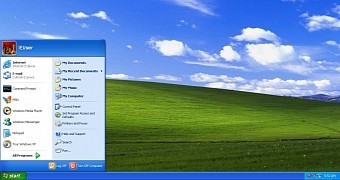Hell is freezing over for the second time this year, as Microsoft has just pushed a new set of updates for Windows XP, despite that this operating system reached end of support in April 2014.
Last month, Microsoft published an emergency patch for Windows XP in order to block the WannaCry ransomware. The update was originally developed in February and shipped to systems covered by custom support as part of the March Patch Tuesday, but given the growing number of attacks involving WannaCry, Microsoft made the unprecedented decision to release the Windows XP patch publicly as well.
This time, the company says that the Windows XP updates come to block attacks similar to WannaCry, as it learned that government organizations could attempt to exploit Windows systems. In other words, Microsoft is aware of a new vulnerability in Windows, and governments could try to hack computers, so these patches are supposed to protect users.
All Windows versions getting the updates
“In reviewing the updates for this month, some vulnerabilities were identified that pose elevated risk of cyberattacks by government organizations, sometimes referred to as nation-state actors, or other copycat organizations,” Adrienne Hall, general manager of crisis management at Microsoft, explains.
“To address this risk, today we are providing additional security updates along with our regular Update Tuesday service. These security updates are being made available to all customers, including those using older versions of Windows.”
The new updates are available for all Windows versions, starting with Windows XP and ending with Windows 10, though the latter is getting the patches as part of cumulative updates. They are published on Windows Update and on the company’s Update Catalog, and users are recommended to install them as soon as possible.
Although at first glance it might seem like Microsoft is making emergency updates for Windows XP a common practice, this is not the case, the company itself says. These updates are only released because there’s an elevated risk of attacks, Microsoft adds, and the firm has no intention to depart from its standard servicing policies.
This means that even though Windows XP is getting some updates every now and then, upgrading to supported Windows versions should be a priority for those still running the operating system launched in 2001.

 14 DAY TRIAL //
14 DAY TRIAL //